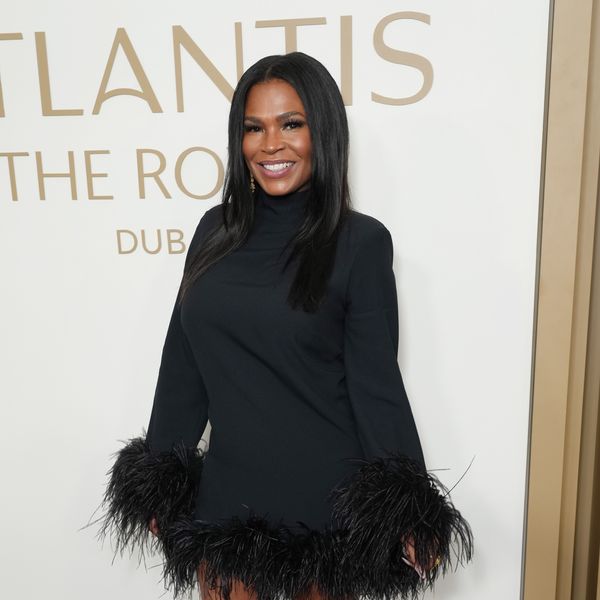In 2009, I lost everything. My career, relationship and home. It's amazing how quickly unemployment can knock you down and change the entire trajectory of your life. I went from earning and saving good money to waking up on my 30th birthday living on my sister's couch.
My credit card debt ballooned to $35,000 and my 802 credit score plummeted into the 500's because I couldn't pay bills. Fast forward five years later and I've not only dug myself out of that hole, but I built a business on the way up. I'm currently a speaker, bestselling author, and financial educator running an internationally recognized brand, but before building a successful business I hit rock bottom.
Here are some money lessons I learned from the struggle:
Always Save for a Rainy Day El Niño
There's no way to predict long-term unemployment, but you should always prepare for it with an emergency fund. I lived well below my means to save money before losing my job. Thankfully, I had some savings to live on.
My first "real" job at 21 was as a teacher's assistant. It only paid $12 per hour, so I lived with my parents to stack coins. I found a modest yet affordable rental in New Jersey with a roommate (my sister), that cost just $1100/month, $550 per person including utilities. As my income steadily increased, I kept the same standard of living and a strict bi-weekly budget. I used envelopes filled with cash to divide my pay into categories: bills, savings, entertainment and grooming.
I lived off one paycheck and saved the other.
By 25, I had $40,000 saved in cash.
Live Richer Lesson #1:
Nothing in life is guaranteed, so establishing good saving habits no matter how much you make is invaluable. Downgrade your life, if necessary. This could mean cutting cable, getting a roommate or keeping your gel manicure on for a few extra weeks.
How To Live This Lesson Now:
Begin to set aside a few dollars from each paycheck in a savings account. Don't have the discipline? Start with Digit. This free resource studies your financial moves and automatically transfers money from your bank account to your Digit Account. They will send you daily, fun texts with updates of your balances and transfers. You can choose to save more, pause savings or withdrawal your money via text as well. Your money is FDIC insured and they have a no-overdraft guarantee. Oh, and they do it for free!
Nothing Good Comes Easy
Before joblessness, my savings game was on point, but my investment game was lacking. I made one crucial mistake that put me in a world of debt and made unemployment overwhelming. At 27, I asked a wealthy friend of mine to teach me how to invest and he pitched me a genius plan. We would buy high-end clothing in New York and ship it to Paris to sell in one of his stores.
My return was supposed to be $1,200 per week for two years. Yup, you read that right. I thought I was going to make $62,400 per year shipping clothes across the pond. I was so excited about making racks on racks that I applied for new credit cards and took out cash advances totaling $20,000.
We sent our first shipment to Paris then I never heard from him or received any money. It devastated me at the time, but I can appreciate the lesson. First, be careful who you trust. Second, if a plan sounds too good to be true, believe it. Last, hard work and passion are what will pay off tenfold, not a get rich quick scheme.
Live Richer Lesson #2:
There's no such thing as easy money. When my "friend" aka The Thief shared his get-rich-quick scheme with me, I should have ran for the hills. Looking back on it, it didn't make sense. Rarely in life do you make a ton of money without knowledge and work.
How To Live This Lesson Now:
If you're interested in investing, you first have to invest in knowledge. Two financial books to help you get started are: The Richest Man in Babylon by George Clason, Stock Market Investing Mini Lessons For Beginners: A starter guide for beginner investors by Mabel Nunez.
Odd Jobs Add Up
Losing my job and the implications of bad investing had me down and out. At 30, I was directionless and living off the little savings I had left. I didn't know how to start over after losing so much. Back when I was a teacher, staff members took notice of my money management skills and looked to me as a financial resource.
Looking for something to keep me busy, I began volunteering at several nonprofits teaching financial education. I networked like my life depended on it and asked nonprofits to refer me to other organizations for paid opportunities. Since I couldn't find 9 to 5 work, I did a bunch of side hustles to make money. I took on one-on-one financial consultations, babysitting and tutoring.
Sidebar: Don't discount volunteering. I met my first clients for The Budgetnista by volunteering. By combining volunteering and sharing me in action on social media, I was able secure a new client each time I spoke and posted myself speaking online. In the beginning, 80% of my business came from the posts I shared on Facebook. So use your social media network to showcase your skills and increase your income.
Live Richer Lesson #3:
If there's no place for you in the workforce, make your own way. Use your experience and passions to offer a product or service that someone finds valuable. Hustle even if you have a full-time job. Multiple streams of income will lead to financial security.
How To Live This Lesson Now:
- Use Your Degree. If you have the education, put it to use. You can charge more money for a service when you're an expert in a field. Think about how you can shape your education into an extra source of income.
- Do What You Do For a Living. You can hit the ground running with your side hustle if you have work experience in the industry. There's no learning curve and you have a resume that proves you know what you're doing.
- Activate Your Passion. Start charging for things you already do for free. You already have an established clientele who like your work and you can use them to spread the word.
- Negotiate a Raise. Start to collect all of the amazing value you bring to your job. Put it together in a file. Make sure you monetize your value. Example: The decision you made to do _________ is saving the company $10,000/year.
Take Ownership of Your Situation
At first, I didn't want to face my credit card debt from the bad investment even when I started making money again. I felt paying any more than the minimum payment was admission of guilt and I didn't want to take full responsibility.
Only after owning the mistake and forgiving myself was I able to start crushing the debt. I transferred my credit card debt to cards that offered introductory 0% interest rates, so the money I paid largely went to principal instead of interest. (Use Magnify Money to help you find the best balance transfer cards.) If I had continued to sit back without taking ownership, interest would have increased my debt exponentially.
Since I've been through the struggle, I understand how disheartening financial missteps can be. You feel destitute, desperate and hopeless, but there is a way out if you face the situation. Open the bills, pick up the phone for collectors and form a plan. Sure, it won't happen overnight, but you have the power to change your situation.
Live Richer Lesson #4:
Have you made financial mistakes in the past? Are you currently making financial mistakes? Will you probably make financial mistakes in the future? Yes?! Well, so did Will Smith, Rihanna, Suze Orman, and me!
Sometimes you are unable to move forward financially, not because you don't make enough money, not because you don't have the resources, and not because your situation is un-repairable. The truth is, you have yet to get over your financial mistakes if you want to move onto greener pastures (pun intended). Financial forgiveness is one of the first keys to becoming financially healthy.
How To Live This Lesson Now:
- Admit to Yourself and Take Ownership. Confess; say "I messed up when I __________". Feel free to substitute the word "messed" with your verb of choice.
- Identify the What and Why (Be Very Specific). Take a break from beating yourself up for a minute and clearly identify your mistake and why you made it.
- Tell Someone You Trust. OK, so this may be a tough for you, but tell a trusted confidant. Doing so will allow you to let go of the shame, begin to forgive yourself, and ultimately work on a solution.
- Focus on a Solution. So the truth is out, and it's time that you focus on what IS, verses on what ISN'T.
- Plan, Then Work the Plan. Once you've drafted your list of possible solutions, pick one and begin crafting a plan. Not sure how to start or what to do?
Using these four lessons, I now run a successful business, and no longer struggle financially.
Tiffany Aliche, better known as "The Budgetnista", is America's favorite financial educator and she's here to answer your money questions.
Featured image by Getty Images
Want more stories like this? Sign up for our weekly newsletter here and check out the related reads below:
I Paid Off My $15,000 Credit Card Debt - Here's How
I Paid Off $40K of Debt In 18 Months
How I Paid Off $7,000 Worth Of Debt In 5 Months
Moving Overseas Helped Me Pay Off Over $200K In American Debt


























